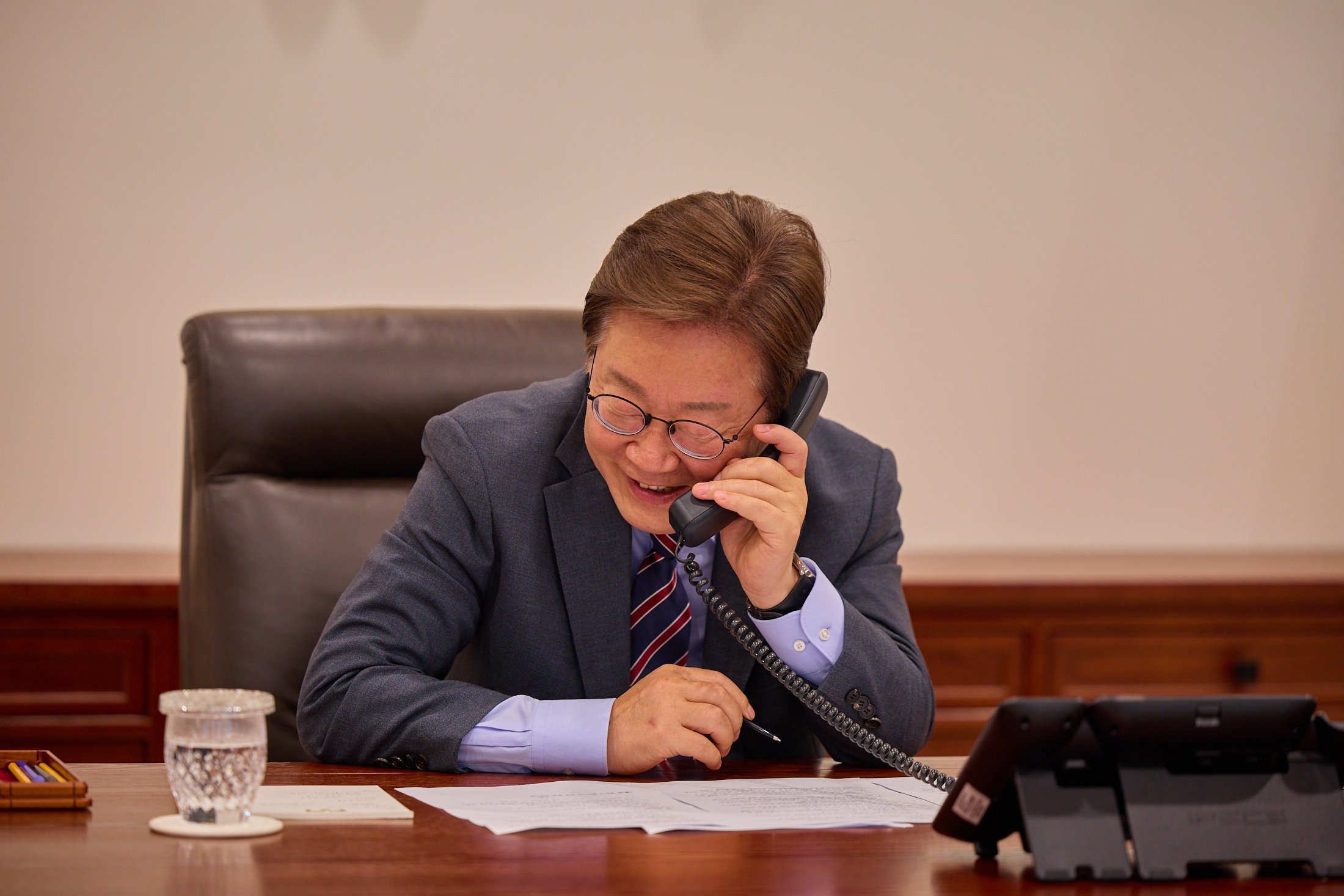On a day heavy with memory, South Korea’s President Lee Jae-myung invoked the language of peace, urging restraint and dialogue even as the nuclear-armed North forges deeper ties with Russia and the Korean peninsula bristles with tension.
“The surest way to secure our safety is to build peace – peace so strong that there is no need to fight,” Lee said in a solemn social media post, commemorating the 75th anniversary of the onset of the Korean war.
The conflict from 1950–53 left millions dead and ended with an armistice, but no peace treaty.
“The era of relying solely on military strength to defend the country is over,” Lee wrote in his post. “It is better to win without war than to win through war.”
His message was more than just rhetoric. In recent weeks, Lee’s newly formed government has moved to recalibrate the peninsula’s dangerous status quo, seeking to nudge North Korea from confrontation to conversation, even as the spectre of conflict looms larger than at any time in recent memory.
In a gesture laden with symbolism, Seoul this month halted its loudspeaker propaganda broadcasts along the border – the first such move in a year. Within hours, Pyongyang reciprocated, silencing its own speakers.
Seoul has also urged activist groups to refrain from launching anti-regime leaflets across the heavily fortified border, a practice that in the past drew furious responses – and trash-laden balloon launches – from the North.
Within Lee’s cabinet, a new voice emerged this week. Chung Dong-young, freshly nominated as unification minister, called on Tuesday for “restoring inter-Korean communication” as “an urgent priority”.
“Trust between the two Koreas has completely collapsed and trust begins with communication,” he warned, pointedly blaming the previous conservative government of impeached president Yoon Suk-yeol for failing to stop the rot.
Chung urged a revival of talks not just between Seoul and Pyongyang, but also between North Korea and Washington.
He also expressed hope that China might reclaim its role as a regional stabiliser, noting Beijing’s “key mediating role” in the six-party talks of 2005. “We hope China will continue to play a constructive role going forward,” Chung said.
The scars of the Korean war run deep. Few conflicts of the last century wrought such devastation – yet out of that ruin, South Korea has risen, transforming itself into an economic and cultural giant. From a per capita income of just US$67 in 1953, it now stands among the world’s richest economies, a titan of industry and pop culture with a gross domestic product per capita exceeding US$35,000.
Lee, in his anniversary message, paid tribute to that journey. “The truest way to honour the fallen is to build a country where war never happens again,” he wrote, saluting the veterans whose sacrifices underpinned the nation’s rebirth.
Closed-door policy
But the path to reconciliation is perilous. Analysts see Lee’s approach as a return to South Korea’s liberal tradition of engagement – a method aimed at reviving dialogue on North Korea’s nuclear ambitions, however remote that prospect may seem.
“President Lee’s basic stance is to prioritise peace and stability first, then seek to improve ties when the timing is right,” Koh Yu-hwan, a professor of North Korean studies at Dongguk University, told This Week in Asia. “But he’s facing a North Korea that has firmly shut its doors.”
That freeze in inter-Korean contacts was underlined just weeks ago, when Pyongyang ignored a South Korean offer to discuss the return of four North Koreans rescued at sea.
Since 2019’s failed summit in Hanoi between Kim Jong-un and US President Donald Trump, North Korea has grown more isolated and more combative, amending its constitution last year to brand the South a “hostile state” and severing road and rail links in a move Kim called “not only a physical severing, but also the end of an evil relationship with the South”.
Meanwhile, Pyongyang has tightened its strategic partnership with Russia, supplying arms and soldiers for Moscow’s war in Ukraine, reportedly in exchange for fuel and raw materials.
“The North is gaining tangible benefits from its cooperation with Russia,” Koh said.
“Unlike with China, closer ties with Russia carry fewer risks of exposing ordinary North Koreans to outside influences. Pyongyang sees this alignment as ideal for achieving its top goal – preserving the one-man rule of Kim Jong-un.”
With its nuclear arsenal growing, North Korea has shown little interest in returning to the negotiating table. “Pyongyang is now emphasising self-reliance and limiting exchanges with the outside world – with the exception of Russia,” Koh added.
Lim Eul-chul, a professor of North Korean studies at South Korea’s Kyungnam University, said Seoul’s recent moves might have helped ease tensions, but expectations were tempered.
“Seoul’s friendly gestures, such as halting loudspeaker broadcasts and preventing leaflet launches, help reduce military tensions and lower the risk of unintended clashes near the border,” he said.
“But South Korea does not expect North Korea to return to dialogue any time soon.”
Even if Lee’s peace drive were to soften Pyongyang’s stance, Lim warned that Seoul’s options had been severely narrowed by international sanctions.
“To restore inter-Korean railways and roads, for instance, you need materials and personnel crossing the border – and that would trigger sanctions,” he said.
“Unless there’s an unexpected breakthrough in stalled denuclearisation talks, which looks highly unlikely at the moment, President Lee’s peace drive may not go far.”
For now, the peninsula remains a sideshow for most world powers. Despite Trump’s reported willingness to meet Kim again, “it’s not high on his agenda”, Lim said.
With Washington’s focus increasingly drawn to crises in the Middle East and Ukraine, the two Koreas will remain suspended between war and peace – a division with no clear end in sight.
